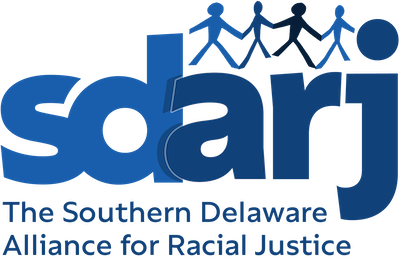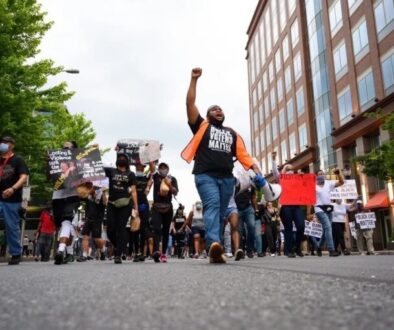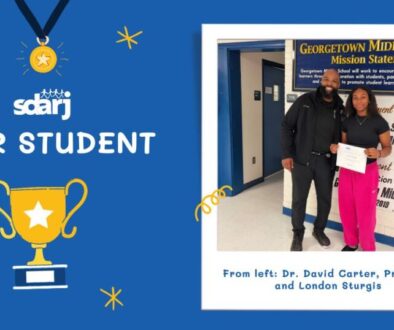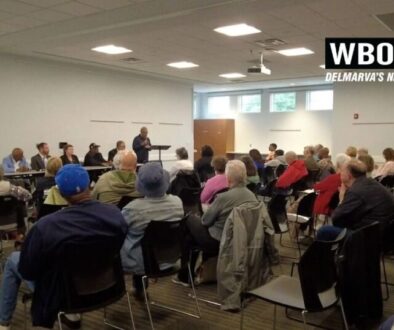SDARJ members reflect on the past and look to the future at June 13 meeting
SDARJ members broke into two groups at our June 13 meeting to reflect on our past programs and initiatives and talk about where we need to go from here. Notes from each group follow:
NOTES FROM GROUP 1
- What stood out for you from the sessions you attended? What did you learn or have confirmed in these discussions? Please be a specific as possible.
Ex-offenders panel -moving, gave people a chance to hear their experiences, they were open, learned about the barriers and obstacles they faced
After lock-up panel — No real rehabilitation while in lock-up, disengagement of the community in the prison system
- Were there any surprises for you from any of the sessions/speakers?
Pre-trial detention — guilty before proven innocent
Amazed how distinctive DE’s system is — no jails, only prisons; locking up petty criminals with violent ones.
Creating an us vs. them attitude
Power of the wardens — no consistency throughout the prison system
Breaking down of stereotypes
- What impact has this information had on you/what are you doing differently? (Example: How you view criminal justice issues, how you analyze the news about criminal justice, your willingness to speak about the issues, etc.)
One person in the group had an hour-long conversation with one of the people on the ex-offender panel. He was very impressed with the person’s openness and willingness to talk about his experiences.
Attending more meetings and communicating more with politicians, who don’t really know what’s going on at the grass roots
We should apply psychological screening to corrections officers and policemen
Need to keep prisons for profit out of DE
Focus on ways to create better race relations
- Are there other aspects of the criminal justice system you would like SDARJ to address in the future?
What are the racial disparities in the prisons?
What are the demographics of guards compared to prisoner population?
How do we provide better housing opportunities to people coming out of prison? How do we make it possible for ex-offenders to live with their families without the family losing their subsidized housing?
What can we do to remove the re-entry barriers?
What is the female journey both while in prison and once they are out?
How does re-entry relate to the homeless situation? Treatment of homeless?
What are the types of fines for which prisoners are responsible?
What is probation like?
- Our next area of focus will be the education system. What are you most interested in learning about this topic as it relates to racial justice? What questions do you have at this point?
Fair housing laws — new guidelines
How do we combat racism when the parents are racist?
What are the hiring practices and demographics of teachers? Impact of disparities?
What programs are there in the schools to talk about racial justice?
The expulsion rate and racial justice (school to prison pipeline)
Cape District schools and the LBGT Q population
What social justice curriculum is there for early childhood?
What education opportunities are the in prison?
What intervention methods are being used for high-risk children?
How is discipline administered?
What is the power of a school board?
Update curriculum on African American contributions in American history
Standards and compliance and who monitors
The impact of standards on racial justice
NOTES FROM GROUP 2
- What stood out for you from the sessions you attended? What did you learn or have confirmed in these discussions? Please be a specific as possible.
Openness of police chiefs and captain to begin and carryout our interests and open communication. Appreciate that Charlotte put the panel together. Hoping that a “coffee meeting” took place between the Georgetown Chief and the ex-offender who spoke met to heal.
Quite an awakening that individuals will plead guilty in order to keep their jobs and families.
Chief Justice Strine: affirming to hear his efforts. Great to hear his honesty and his struggles. Too bad he and Atty General don’t see eye to eye. We have grown to love the Chiefs and connect person to person.
Panel of ex-offenders: amazing to hear their journeys. Appreciated them sharing prison life, but better yet…what they face after prison and their vulnerability. Our views of “offenders” were challenged with examples of real lives; made us question our biases.
Book group/meetings: learned that there are pathways to racial justice through SDARJ!
Movies and books raising racial injustice. “I’m Not Your Negro,” “White Rage,” “The New Jim Crow,” “13”
Prosecutors and Public Defenders: Prosecutors should not have that level of leverage. Justice will never prevail with this inequality of power.
2. Were there any surprises for you from any of the sessions/speakers?
Amazed with the audience participation during presentations. Even in generating concerns and great discourse.
Loss of presumption of innocence: budget crunch vs. punishment takes the focus off on changing incarceration. Gov. Carney wants to set up better ways to “lock ’em down.” A vicious cycle begins when the crime is just “putting a person away.”
Women in prison: An injustice. Maybe we could hear more. Are there enough mental health services to meet the needs while in prison? Who is watching this? Interventions…etc.
Mental Health Services: Police not equipped to deal with issues; not enough services outside to keep folks from being imprisoned for their actions, then NOT receiving therapy, meds and intervention inside the walls. What can we do to help facilitate this?
Concern: Black men don’t need race talks, they live it. How do we get them to teach us? To engage with us? Why have our meetings become less diverse? Why are white people attending SDARJ? What happened to our integrated audience and our integrated community? People are recognizing separation. “Don’t explain racism to a black person.”
Our meetings are in a church where most congregants are black, but we are still separated. The Alliance meetings are becoming less diverse. We need to look at all options for changing that. We need to KNOW each other.
3. What impact has this information had on you/what are you doing differently? (Example: How you view criminal justice issues, how you analyze the news about criminal justice, your willingness to speak about the issues, etc.)
Many folks challenged to look at our implicit biases. Some folks now challenging friends and family about their thoughts and biases. Awareness has been raised and members are speaking up and out more.
The power of the prosecutor has been astounding!
4. Are there other aspects of the criminal justice system you would like SDARJ to address in the future?
What are the racial disparities in the prisons?
The power of the prosecutors. There is a natural “understanding” that what the police say is “true.” So it’s a direct link to the power of the prosecutors. Most prosecutors are appointed — but are they credentialed? Their jobs and promotions are based on results — move the case and get it off the dockets…not about justice.
How can we get mental health services in prisons for proactive interventions?
Can we get corrections officers to tell their story?
Can we hear what’s really happening to folks incarcerated in Vaughn (and elsewhere)?
5. Our next area of focus will be the education system. What are you most interested in learning about this topic as it relates to racial justice? What questions do you have at this point?
Education system in Sussex County
What are the suspension rates white vs. black? Special education rates?
Do school funding formulas impact racism?











